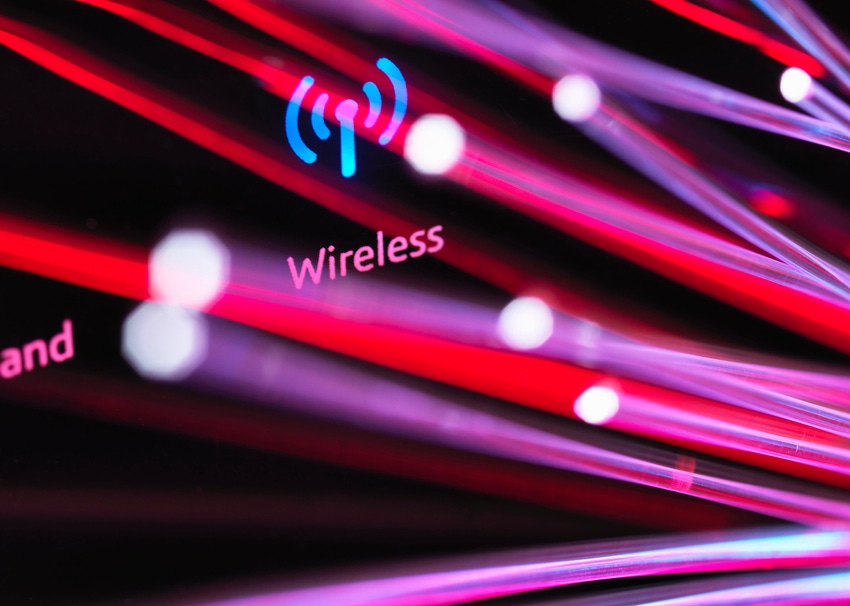T-Mobile wins more 5G spectrum over AT&T's objections
The FCC agreed to issue most of T-Mobile's Auction 108 winnings of 2.5GHz spectrum licenses, despite AT&T's objections. However, the agency is requiring T-Mobile to divest around 20MHz of spectrum in Hawaii.

The FCC approved most of T-Mobile's 2.5GHz spectrum auction winnings, though it will require the company to divest some of its spectrum in Hawaii.
AT&T raised concerns over T-Mobile's spectrum auction purchases, arguing T-Mobile would gain an unfair position in the market with that additional spectrum. Moreover, the FCC indicated earlier this year it would review the "competitive effects" of T-Mobile's 2.5GHz spectrum winnings.
The FCC's approval paves the way for T-Mobile to add more 2.5GHz capabilities across roughly 11,000 cell sites in the US, mostly in rural areas. The company has said it will use that additional spectrum to improve its wireless network, including its fixed wireless access (FWA) services.
Spectrum is critical to the speeds and capacity available inside a wireless network. The more spectrum an operator has, the faster speeds it can provide and the more customers it can support.
"This seems a very intelligent compromise that serves the public interest," Michael Alcamo told Light Reading. Alcamo is president of M.C. Alcamo & Co., an investment bank that works in spectrum. He explained that T-Mobile's spectrum divestiture in Hawaii represents a reasonable condition for the FCC to approve T-Mobile's spectrum purchases.
Rejecting AT&T's challenge
The FCC's Auction 108 of midband 2.5GHz spectrum ended in 2022. T-Mobile captured around 90% of all the licenses sold, or 7,156 of the 7,872 total licenses that received winning bids. T-Mobile agreed to pay around $304 million for those licenses – a relative steal considering the C-band auction for similar spectrum licenses generated an astounding $81 billion in winning bids.
However, after the conclusion of Auction 108, AT&T argued that T-Mobile "controls a grossly outsized portion of the midband spectrum needed to fuel the 5G revolution."
In its ruling this week, the FCC rejected those concerns.
"We find that AT&T's petition in this matter does not raise specific allegations sufficient to show that AT&T will suffer competitive harm," the FCC wrote this week.
However, in its assessment of spectrum in Hawaii, the FCC determined that T-Mobile would need to divest around 20MHz across its AWS-1, AWS-3, PCS or 2.5GHz holdings in order to meet the agency's spectrum screen.
The FCC first introduced its spectrum screen in 2004 in order to prevent wireless network operators from gobbling up all the market's available spectrum, thereby blocking rivals from acquiring it. The screen is generally triggered when any one company acquires more than one-third of the total suitable and available spectrum for commercial services in a given market.
"Such screens are the beginning, not the end, of the competitive analysis," the FCC wrote this week. "They do not act as a hard cap on an entity's spectrum holdings, but rather prompt further competitive analysis as part of the commission's case-by-case review."
Following its 20MHz divestiture in Hawaii, T-Mobile will hold a maximum of 350MHz in Hawaii. That compares with up to 145MHz held by AT&T in Hawaii and up to 127MHz held by Verizon.
"We note that ... T-Mobile holds substantial amounts of spectrum in these markets compared to the other significant mobile service providers," the FCC wrote this week. But the agency said that, after divesting 20MHz of spectrum, T-Mobile's holdings will increase overall by only 3.5MHz.
The auction authority
T-Mobile paid so little for spectrum in the FCC's Auction 108 because it's the only big 5G network operator using 2.5GHz licenses in its network, because the licenses are located mostly in rural areas of the US, and because there was less overall spectrum available than in auctions like C-band.
However, the FCC didn't issue T-Mobile its Auction 108 spectrum winnings after the auction because, shortly after the auction ended, the agency lost its congressional auction authority to administer spectrum licenses. That development stems from an ongoing battle in Washington over the future of the 3.1GHz-3.45GHz spectrum band.
Because the FCC refused to issue T-Mobile its Auction 108 holdings, T-Mobile took the issue to Congress. It found an ally in Sen. John Kennedy, a Republican Louisiana Senator since 2017, who managed to shepherd the 5G Spectrum Authority Licensing Enforcement (SALE) Act through Congress. The legislation requires the FCC to issue Auction 108 spectrum licenses by March 18, 2024.
Now, the FCC has issued those licenses after a brief review.
About the Author(s)
You May Also Like




_International_Software_Products.jpeg?width=300&auto=webp&quality=80&disable=upscale)







